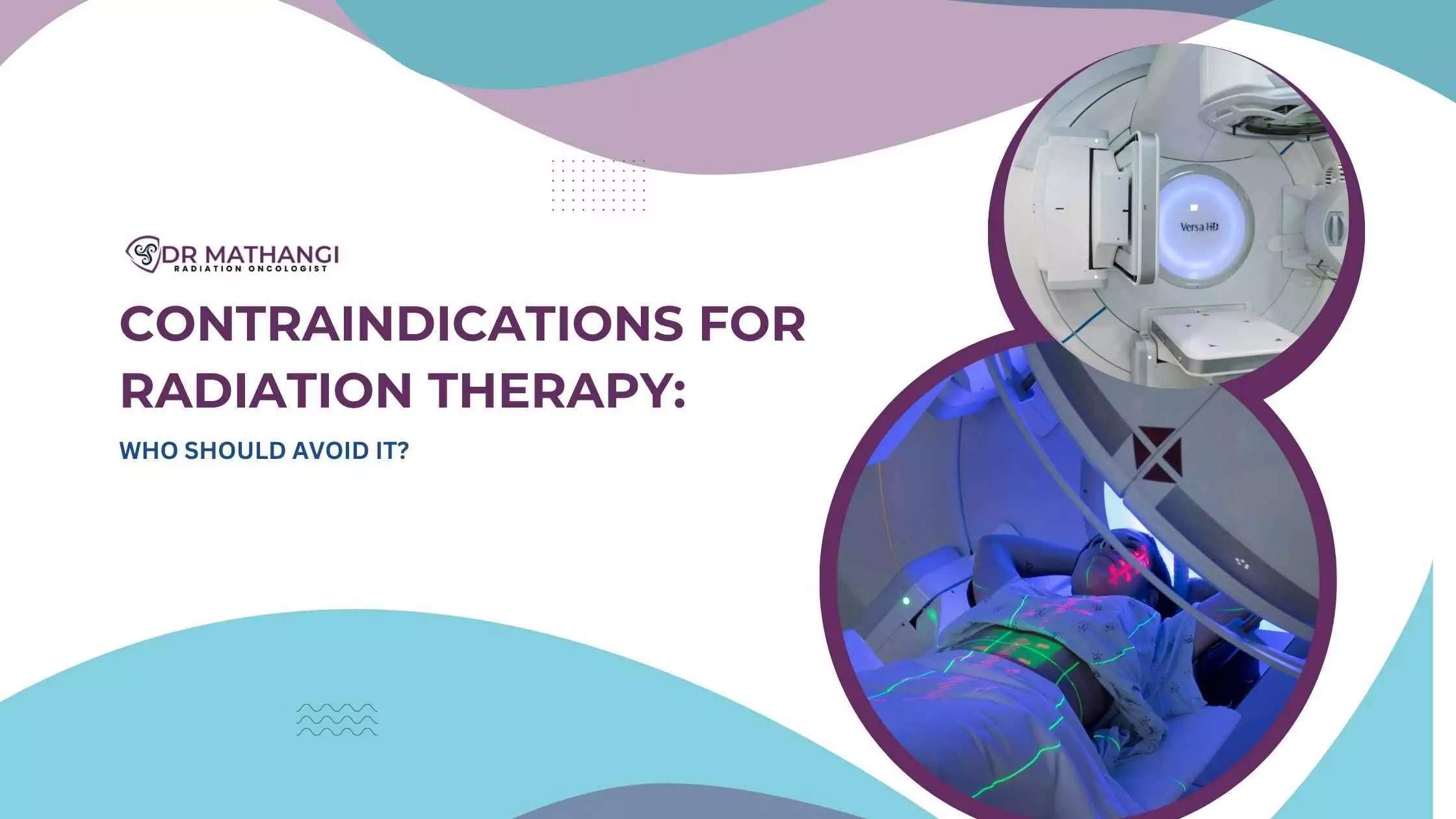
While radiation therapy is a cornerstone in cancer treatment—used in over 50% of all cancer patients—not every individual is an ideal candidate. There are critical contraindications to radiation therapy that must be assessed carefully before treatment begins. These contraindications range from physiological conditions to previous treatment histories, and determining these risks early can prevent complications and ensure optimal outcomes.
Dr. Mathangi J, Senior Consultant & In-charge of Radiation Oncology at Gleneagles Cancer Institute, brings over 15 years of global and clinical excellence to her patients. With more than 12,000 successfully treated cases and advanced training in IGRT, SBRT, RapidArc, and intraoperative radiotherapy, she is an undisputed authority in the safe and effective use of radiotherapy. Her holistic, evidence-based approach makes her uniquely qualified to assess and manage contraindications to radiation therapy.
Pregnancy risks are one of the most well-known contraindications to radiation therapy. Radiation exposure during pregnancy—especially during the first trimester—can harm fetal development, leading to congenital malformations or even fetal death. In such cases, alternative therapies may be considered. Dr. Mathangi ensures that thorough pregnancy screening is performed before initiating radiation and collaborates with obstetric specialists when necessary.
Patients with connective tissue disorders such as scleroderma or lupus are at higher risk of severe radiation-induced side effects. These disorders impair wound healing and increase tissue sensitivity. Radiation in such individuals can cause fibrosis, ulcers, and other complications. Dr. Mathangi’s rigorous pre-treatment screening and modified radiation planning, including dose modulation and advanced targeting techniques, help mitigate risks where possible.
Another critical consideration is prior radiation exposure. Each body region has a maximum tolerable radiation dose, beyond which the risk of tissue necrosis or secondary malignancy increases. For patients who have already undergone radiotherapy in the same area, the margin for additional safe exposure is slim. Dr. Mathangi uses sophisticated imaging and historical dose mapping to evaluate feasibility and offers alternatives such as brachytherapy when re-irradiation is contraindicated.
Some patients may require surgery either before or after radiation. However, there are situations where radiation can impair surgical healing, making it a surgical contraindication. For instance, radiotherapy before extensive abdominal surgery may lead to adhesions or delayed wound repair. Dr. Mathangi collaborates with surgical oncologists to carefully time the therapy sequence, optimizing healing and tumor control outcomes.
Patients with compromised immune systems or specific immune conditions like HIV/AIDS or autoimmune diseases present unique challenges. Radiation can suppress bone marrow function, exacerbating existing immunodeficiencies. Additionally, patients with overactive immune responses may develop excessive inflammation post-radiation. Dr. Mathangi tailors radiation plans using adaptive radiotherapy and ensures close hematological monitoring in such patients.
Some less typical yet important contraindications to radiation therapy include:
Each of these requires specialized assessment, and Dr. Mathangi brings her clinical acumen and multidisciplinary coordination skills to ensure patient safety.
Whether it's using DIBH techniques for breast cancer patients with heart risk or SBRT for minimizing lung exposure, Dr. Mathangi’s treatments are engineered for safety. Her leadership role at Gleneagles and as Director of Fellowship in Advanced Radiotherapy Techniques ensures that patients benefit from internationally benchmarked protocols and innovative care models.
The decision to proceed with radiation therapy should never be rushed or assumed. If you fall into any of the above categories or are unsure about your eligibility, expert evaluation can protect you from avoidable risks. Avoiding proper assessment may result in irreversible complications.
Start your cancer care journey with clarity and safety. Submit your details on the contact form, and Dr. Mathangi’s team will schedule a comprehensive evaluation to determine your treatment readiness and options.
With the right knowledge and the right specialist, your cancer care can be both effective and safe. Choose excellence. Choose Dr. Mathangi.